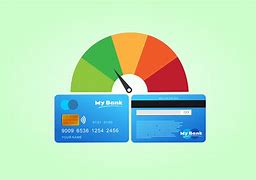High-interest credit cards can be a significant financial burden for many individuals, often leading to unmanageable debt levels and long-term financial stress. While credit cards offer convenience and flexibility, failing to manage them wisely can quickly spiral into overwhelming Credit Card Debt. Understanding the challenges posed by high-interest credit cards and learning effective ways to tackle them is essential for maintaining good financial health.
Understanding the Challenges of High-Interest Credit Cards
High-interest credit cards come with annual percentage rates (APRs) that can exceed 20% or even 30%. This means that even a small balance left unpaid can quickly grow into a larger debt due to compounded interest. For individuals who rely heavily on credit cards for daily expenses, the burden can become overwhelming, making it harder to keep up with minimum payments.
Additionally, high-interest rates can lead to:
- Increased Financial Stress: Constantly trying to meet payment deadlines can cause anxiety and strain on your financial resources.
- Lower Savings: More money spent on interest means less available for savings or emergencies.
- Debt Cycles: Relying on credit cards without addressing underlying spending habits can lead to perpetual debt cycles.
Steps to Tackle High-Interest Credit Card Debt
If you’re struggling with high-interest credit card debt, there are practical steps you can take to regain control of your finances:
1. Evaluate Your Spending Habits
Start by analyzing your spending patterns and identifying areas where you can cut back. Creating a budget helps you allocate funds effectively and Avoid Overspending.
2. Pay More Than the Minimum
Paying only the minimum required amount often prolongs debt repayment due to the added interest. Whenever possible, pay more than the minimum to reduce the balance faster.
3. Consolidate Your Debt
Debt consolidation allows you to combine multiple high-interest debts into a single, lower-interest loan. This approach simplifies repayment and reduces the overall interest you’ll pay.
4. Consider a Balance Transfer
Many credit card companies offer promotional low-interest balance transfer options. Transferring your balance to a card with a lower APR can help you save on interest and pay off your debt faster.
5. Seek Professional Help
If managing your credit card debt feels overwhelming, consider reaching out to a financial advisor or debt management service. Solutions such as an Individual Voluntary Arrangement (IVA) can provide structured repayment plans tailored to your needs. Learn more about applying for an IVA at Apply for IVA.
Maintaining Financial Health Moving Forward
Once you’ve tackled high-interest credit card debt, it’s crucial to maintain good habits to prevent future financial challenges.
- Use Credit Wisely: Limit credit card use to essential expenses that you can pay off in full each month.
- Build an Emergency Fund: Set aside money for unexpected expenses to reduce reliance on credit cards.
- Monitor Your Credit: Regularly check your credit report to stay aware of your financial standing and address any discrepancies.
High-interest credit cards can harm your financial health if left unchecked, but with the right strategies, you can regain control and build a stable financial future. For more support in managing your debt, visit Debt Free Now.
Check if you qualify for IVA#DebtManagement #CreditCardDebt #AvoidOverspending #FinancialHealth #DebtFreeNow #HighInterestDebt #IVAHelp





